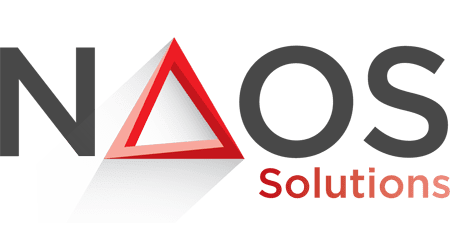Examining the impact of outsourcing a healthcare contact center is a healthy exercise for Patient Support Directors. In the evolving healthcare landscape, delivering exceptional patient experiences is no longer an added bonus—it’s a necessity. As the frontline of patient interactions, healthcare contact centers play a critical role in shaping these experiences.

However, managing these operations in-house presents numerous challenges. From the complexities of training and retaining qualified staff to ensuring seamless integration of advanced technology, healthcare providers often struggle to maintain an efficient, patient-centric contact center while focusing on their primary mission—providing exceptional care.
Enter outsourcing—a strategic solution transforming healthcare contact centers’ operations. By partnering with specialized service providers, healthcare organizations can circumvent many of these hurdles and capitalize on benefits like cost savings, improved patient satisfaction, and enhanced scalability.
This article delves deeper into these pressing challenges faced by in-house healthcare contact centers, explores the significant benefits outsourcing can offer, and provides a comprehensive guide on choosing the right outsourcing partner.
=> If you’re wondering when to outsource patient support, our detailed blog covers the key factors to consider.
Overcoming In-House Obstacles: Key Challenges of Healthcare Call Center Operations
In-house healthcare contact centers face several key challenges that can impact their operations and effectiveness. Addressing these challenges requires a proactive approach, ongoing training, leveraging technology solutions, and maintaining a patient-centric focus to provide high-quality healthcare support and improve patient satisfaction.
Some of these challenges include:
Staffing and Training: Navigating the Twists and Turns
Finding and retaining qualified and experienced staff members can be a significant challenge. Healthcare contact centers require personnel knowledgeable about medical terminology, procedures, and regulations. Adequate training programs and ongoing professional development are necessary to ensure staff members can handle complex inquiries and provide accurate information.
Handling Patient Volume and Demand: A Balancing Act

Healthcare contact centers often face high call volumes, particularly during peak times, leading to long wait times and frustrated patients. Managing and predicting call volume patterns is crucial to ensuring adequate staffing levels and efficient inquiry handling.
Technological Infrastructure: More Than Just a Set of Tools
Maintaining an adequate technological infrastructure is vital for healthcare contact centers. They need robust call center software, customer relationship management (CRM) systems, and telephony solutions to handle calls, manage patient data securely, and track inquiries effectively. Integrating these systems with electronic health records (EHR) and other healthcare systems can be challenging. For more information, read our post about The Future of Patient Support.
Staying Afloat Amid Compliance and Regulatory Requirements

Strict compliance with regulations such as HIPAA is critical in the healthcare industry. Healthcare contact centers must maintain patient privacy and data security throughout all interactions. Compliance with these regulations requires ongoing monitoring, staff training, and the implementation of robust security measures.
Multichannel Communication: The Many Voices of Patient Support
Patients increasingly expect contact centers to provide multiple communication channels, including phone calls, emails, web chats, and social media interactions. Managing these diverse communication channels while maintaining consistency and quality of service can be challenging.
Language and Cultural Barriers: Deciphering the Code
Healthcare contact centers often serve diverse populations with varying language proficiencies and cultural backgrounds. Overcoming language barriers and cultural sensitivities requires the availability of bilingual or multilingual staff and the implementation of translation services.
Quality Assurance and Performance Metrics: The Scoreboard of Success
Ensuring consistent quality of service and monitoring agent performance is crucial. Implementing effective quality assurance programs, call monitoring systems, and performance metrics can be complex, requiring ongoing evaluation and improvement.
The Never-Ending Race of Keeping Pace with Technological Advancements
Healthcare technology is rapidly evolving, and contact centers must keep up with advancements such as telemedicine, artificial intelligence (AI), chatbots, and virtual assistants. Integrating these technologies into existing systems and workflows can be challenging and require significant investments.
Impact of Outsourcing a Healthcare Contact Center: The Game Changer Benefits
The Winning Move To Transforming Patient Experience
Outsourcing a healthcare contact center can positively impact the overall patient experience. Contact centers equipped with well-trained agents can handle inquiries and appointment scheduling and provide vital information to patients promptly and efficiently. By outsourcing these services, healthcare organizations can often tap into specialized expertise and advanced technologies that enhance the quality and speed of customer service.

Patient support through outsourcing contact centers will have many advantages, including:
- 24/7 availability and omnichannel support for patients.
- Personalized and empathetic interactions driven by experts with medical backgrounds.
- Reduced wait times.
- Improve response rates through efficient call management.
The result is improved patient satisfaction, increased healthcare provider trust, and enhanced organizational loyalty.
Achieving Cost Savings and Operational Efficiency: The Strategic Advantage
Cost reduction is a significant driving factor behind outsourcing healthcare contact centers. By partnering with a specialized outsourcing provider, healthcare organizations can benefit from economies of scale, leveraging the provider’s existing infrastructure, technology, and workforce. This can lead to substantial cost savings in capital investments, operational expenses, staffing, and reduced overhead costs.
Outsourcing allows healthcare organizations to convert fixed costs into variable costs. Outsourcing partners generally charge based on the volume of services provided or a fixed rate rather than budgeting for ongoing expenses such as salaries, benefits, training, and facility maintenance. This flexibility can help healthcare organizations manage their budgets by aligning costs with the demand for contact center services.
Unlocking Specialized Skills and Scalability: The Hidden Gems of Outsourcing
Outsourcing a healthcare contact center provides access to a pool of specialized skills that may need to be more readily available within the organization. Outsourcing providers often invest in training their agents to handle healthcare-specific queries, regulatory compliance, and complex medical terminologies. As a result, callers receive accurate and consistent information, improving the overall quality of service.
Healthcare organizations can concentrate on their core competencies, such as patient care, research, and development, by outsourcing non-core activities like contact center operations. Healthcare professionals can allocate more time and resources to their primary mission, improving patient outcomes and organizational effectiveness.

Additionally, outsourcing offers scalability advantages. Healthcare organizations experience fluctuations in call volume based on factors such as seasonal changes, marketing campaigns, or public health emergencies. Outsourcing partners can rapidly adjust staffing levels to handle the activity peaks, ensuring timely and smooth patient support.
Safeguarding with Data Security and Compliance: The Protective Shield
Healthcare organizations in the United States must adhere to strict regulatory requirements, such as HIPAA (Health Insurance Portability and Accountability Act).
Data security and compliance with privacy regulations are critical concerns in the healthcare industry. Outsourcing a healthcare contact center requires careful consideration. Reputable outsourcing providers typically have robust security measures to protect patient data and comply with HIPAA. They can help healthcare organizations mitigate the risks associated with breaches and ensure compliance with relevant laws.
Structural Financial Changes: The Ripple Effect

Outsourcing contact center activity can benefit Healthcare organizations by facilitating their financial structure.
Avoid Unnecessary Capital Expenditure
Healthcare organizations can avoid significant capital expenditures associated with setting up and maintaining an in-house contact center by outsourcing to a third party. Instead of budgeting for investments in technology infrastructure, software licenses, equipment, and facilities, organizations can redirect those funds to other critical areas such as patient care, research, or equipment upgrades.
Improve Budget Predictability
Outsourcing contracts often provide a level of predictability in budgeting. Since the outsourcing partner typically charges a fixed or variable rate based on agreed-upon terms, healthcare organizations can forecast and allocate their budgets accordingly. This helps in financial planning, allowing organizations to allocate funds to other areas based on the general outsourcing costs.
Ease the Return On Investment (ROI) Analysis
Outsourcing a contact center can also impact financial planning by considering the potential return on investment. Healthcare organizations can evaluate the cost savings achieved through outsourcing, improved operational efficiency, and enhanced patient satisfaction. By conducting an ROI analysis, organizations can determine if the outsourcing arrangement is financially beneficial and aligns with their long-term financial goals.
Selecting the Best Player: Criteria for Choosing Your Outsourced Healthcare Contact Center Partner
Several key considerations should be evaluated when evaluating the impact of outsourcing a healthcare contact center. By thoroughly considering these factors, you can make an informed decision when outsourcing a healthcare contact center and select a reliable partner that aligns with your organization’s needs and goals. These considerations include:
Vendor Selection Process: Choosing Your Winning Team
Identifying Specific Requirements and Service-Level Agreements (SLAs):
SLA makes sure everyone is working toward the same objectives. When the SLAs are clearly defined, there is less friction in the system, and you spend less time negotiating and debating and more time solving problems.

It makes planning easier. You have a clear set of objectives to build a plan on, such as your target service level, average answer speed, or abandon rates, and everyone knows the objectives.
Ensuring Compliance with Healthcare Regulations and Data Protection Standards:
Ensure that the outsourcing partner has a strong track record in maintaining compliance with healthcare regulations, such as HIPAA. They should have robust security measures to protect patient data and ensure privacy.
Evaluating Vendor Capabilities and Experience in Healthcare Contact Center Services:
Assess the outsourcing provider’s industry experience and expertise in healthcare. They should thoroughly understand medical terminology, procedures, and regulations to handle inquiries accurately and effectively.
Risk Management and Quality Assurance: Playing Defense
Establishing Clear Communication Channels and Performance Monitoring
Evaluate the outsourcing partner’s ability to handle multiple communication channels, such as phone calls, emails, web chats, and social media interactions. They should have the technological infrastructure and skilled staff to manage these channels effectively.
Also, evaluating the outsourcing partner’s communication and collaboration processes. They should have effective lines of communication, regular reporting mechanisms, and a collaborative approach to address issues and provide updates.
Implementing Robust Security Measures and Data Privacy Protocols
Robust security measures and data privacy protocols must be considered when outsourcing contact centers. Outsourced healthcare contact centers should implement strong security measures to protect sensitive data, such as firewalls, intrusion detection, and prevention systems. Identity-centered security is also crucial in contact centers to protect data.
Disaster Recovery and Business Continuity
Assess the outsourcing provider’s disaster recovery plans and business continuity measures. They should have contingency plans to ensure uninterrupted service in emergencies or technical disruptions.
Alignment with Organizational Goals and Culture: Scoring a Culture Touchdown
The Scoring System for Quality Assurance and Performance Metrics
Inquire about the outsourcing partner’s quality assurance processes and performance metrics. They should have mechanisms to monitor and evaluate agent performance, ensuring consistent quality of service.

Scalability and Flexibility: The Art of Pivoting
Consider the outsourcing provider’s ability to scale its operations to meet fluctuating call volumes and evolving needs. They should be flexible and able to adjust staffing levels and resources as required.
Language and Cultural Competency
If serving a diverse population, assess the outsourcing provider’s language capabilities. They should have bilingual or multilingual agents or access to translation services to overcome language barriers. Cultural competency is also essential to ensure sensitivity and understanding of diverse patient backgrounds.
Assessing Compatibility of Values, Mission, and Patient-Centricity
Ensure that the outsourcing partner’s training programs and knowledge transfer processes. They should have robust training programs to ensure their agents are knowledgeable about healthcare processes, systems, and regulations. They should also be open to knowledge transfer and collaboration to align with your organization’s values and practices and seamlessly integrate existing processes and systems, in addition to the ability to change management strategies to ensure stakeholder engagement.
Conclusion
Outsourcing a healthcare contact center can positively impact patient experience, operational efficiency, and cost savings for healthcare organizations. Healthcare organizations can access skilled resources, advanced technologies, and scalable solutions by partnering with a specialized outsourcing provider.
However, it is crucial to address potential challenges through a robust partnership agreement that should include well-defined key performance indicators (KPIs), service level agreements (SLAs), ongoing monitoring, open communication, and continuous improvement and feedback mechanisms.
Don’t let the challenges of managing a healthcare contact center prevent you from delivering exceptional patient experiences. Outsourcing is a strategic solution that brings expertise, efficiency, and cost savings to your operations. You can overcome your hurdles and enhance your healthcare contact center. Isn’t it time you explored how outsourcing can impact your operations?
Take the first step towards streamlining your healthcare contact center operations. Contact NAOS CX today to discover how our tailored solutions can meet your specific needs and elevate patient satisfaction. Click below to schedule a consultation and learn more about our exceptional patient support services. Together, we can redefine the future of your healthcare contact center.

